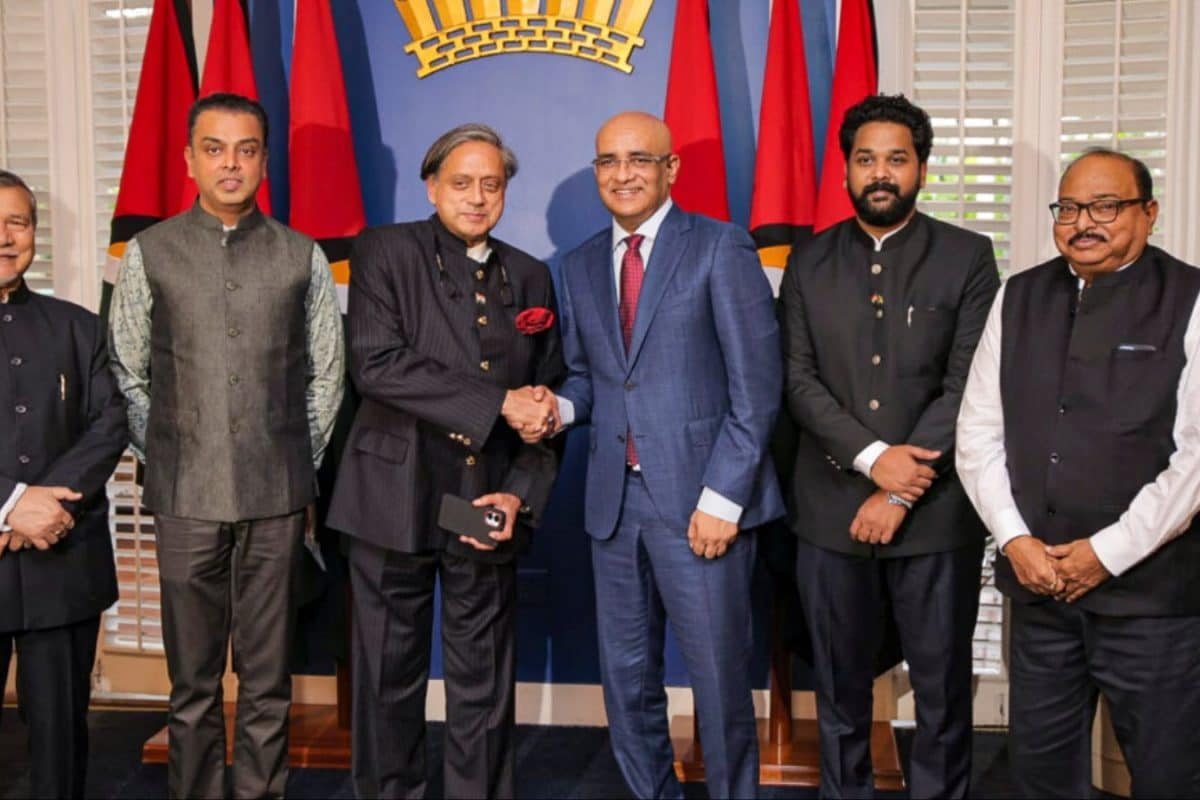

An Indian parliamentary delegation's recent visit to Guyana has underscored India's firm stance against terrorism and its commitment to peaceful resolutions. The delegation, comprised of members from across the political spectrum, engaged with top Guyanese leaders, including Prime Minister Mark Anthony Phillips and Vice President Bharrat Jagdeo, to convey India's position on combating terrorism and to explore opportunities for enhanced bilateral cooperation.
The visit, which took place against the backdrop of India's 'Operation Sindoor' and the terror attack in Pahalgam, saw strong support from the Guyanese leadership for India's anti-terrorism efforts. Prime Minister Phillips reiterated Guyana's condemnation of all acts of terrorism, emphasizing the importance of peaceful coexistence and adherence to the rule of law. He also acknowledged the long-standing relationship between India and Guyana, rooted in shared history and the significant Indian diaspora that constitutes approximately 40% of Guyana's population.
Vice President Jagdeo echoed these sentiments, stating unequivocally that Guyana stands with India in its fight against terrorism and believes that perpetrators must be brought to justice. He further expressed Guyana's eagerness to collaborate with India on development projects in key sectors such as infrastructure, fintech, and agriculture, indicating a shared vision for progress and prosperity.
The Indian delegation, led by Congress MP Shashi Tharoor, highlighted India's resolute policy of 'Zero Tolerance for Terrorism' during their discussions with Guyanese officials. They elaborated on India's position concerning recent events, including 'Operation Sindoor' and the Indus Water Treaty, emphasizing the need for a firm and unified global response to terrorism.
Beyond the critical issue of terrorism, the delegation's visit also served to strengthen the broader bilateral relationship between India and Guyana. Discussions encompassed Guyana's impressive economic growth, fueled by recent oil and gas discoveries, and the vast opportunities available for Indian companies in various sectors, including agriculture, telecommunications, banking, and highway development. Guyana's need for skilled labor was also discussed, with the Guyanese leadership welcoming the prospect of Indian workers contributing to their nation's development.
The Indian delegation also engaged with the Indian diaspora in Guyana, who voiced their strong support for India's efforts to counter cross-border terrorism and lauded the government's response. The MPs also acknowledged the Indian diaspora's role as a spiritual and cultural anchor for the Indian community in Guyana.
This visit reaffirms the strong and enduring bond between India and Guyana, built on shared values, historical ties, and a mutual commitment to peace and development. Guyana's firm support for India's fight against terrorism sends a powerful message of solidarity, while the discussions on economic cooperation pave the way for a stronger and more prosperous partnership between the two nations. It also highlights India's proactive diplomatic efforts to build international consensus against terrorism and to foster peaceful and mutually beneficial relationships with its global partners.